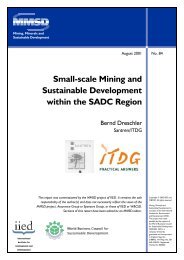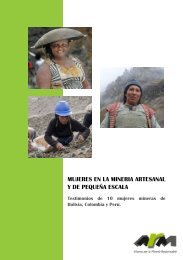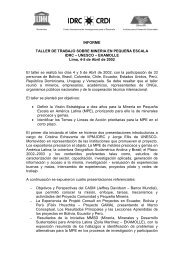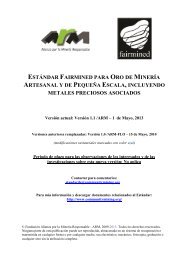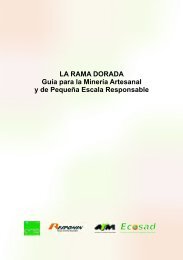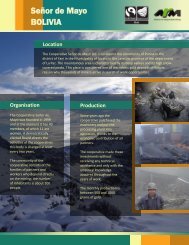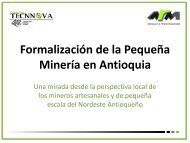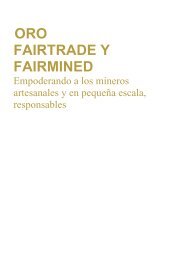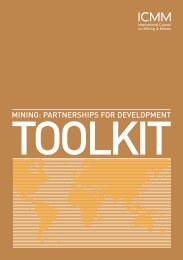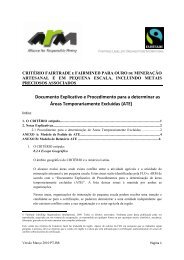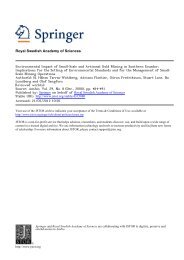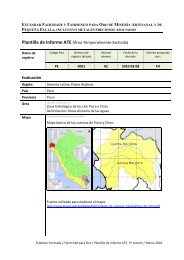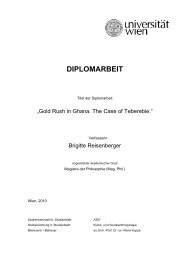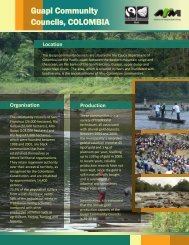A Poisonous Mix - Human Rights Watch
A Poisonous Mix - Human Rights Watch
A Poisonous Mix - Human Rights Watch
Create successful ePaper yourself
Turn your PDF publications into a flip-book with our unique Google optimized e-Paper software.
About half of all schools do not have latrines—a practical problem that deters girls from<br />
school attendance—and lack a canteen, sports facilities, or a room for teachers. 296<br />
Some mines have community schools, private schools, or madrasas (Islamic schools).<br />
However, the demand for community-based schools is fairly low in mining areas; this means<br />
that the government has an even greater obligation to ensure public schools are available. 297<br />
School Fees<br />
School fees are unlawful in Mali, yet parents usually pay school fees for children who<br />
attend. Community schools charge fees, and even public schools sometimes require<br />
parents to pay in money or in kind, for example, food for the teacher.<br />
School fees discourage parents from sending their children to school rather than to the mine.<br />
Teachers, parents, and child laborers told us that school fees were one of the reasons why<br />
children do not attend school. A group of seven women in Sensoko, Kéniéba area, explained<br />
that they could not pay school fees for all of the children in a family, and therefore sent some<br />
children to work full-time in the gold mine instead. Every month, they pay to the local school<br />
800 CFA francs (about US$ 1.75) per child. This group of women had a total of 29 school-age<br />
children working in the mine; of these, 18 were also attending school. 298<br />
Karim S., a child laborer at Worognan mine, talked about his desire to attend school:<br />
I have never been to school. My father enrolled my two older siblings [in<br />
school], but it did not work for me. I would like to go to school, but my<br />
father refused. 299<br />
Another child laborer, Oumar K., explained that he had been in school but dropped out<br />
because his parents could not pay the school fees any longer. He was in school until fourth<br />
grade, but was not allowed back after an illness because his parents had not paid the<br />
school fees. His three sisters were also not attending school. 300<br />
296 ILO, “Etude transfrontalière sur le travail des enfants dans l’orpaillage,” pp. 45-46; <strong>Human</strong> <strong>Rights</strong> <strong>Watch</strong> interview with<br />
representative of RAC, Kéniéba, April 2, 2011; <strong>Human</strong> <strong>Rights</strong> <strong>Watch</strong> visits to schools in Baroya, Sensoko, and Worognan. For<br />
latrines, see UNICEF, “’Girl friendly/ child-friendly’ schools provide a brighter future for Mali”, August 18, 2011,<br />
http://www.unicef.org/infobycountry/mali_59595.html (accessed September 7, 2011).<br />
297 ILO, “Etude transfrontalière sur le travail des enfants dans l’orpaillage,” pp. 45-46.<br />
298 <strong>Human</strong> <strong>Rights</strong> <strong>Watch</strong> interview with seven women gold miners, Sensoko, April 4, 2011.<br />
299 <strong>Human</strong> <strong>Rights</strong> <strong>Watch</strong> interview with Karim S., estimated age 14, Worognan, April 8, 2011.<br />
300 <strong>Human</strong> <strong>Rights</strong> <strong>Watch</strong> interview with Oumar K., estimated age 14, Sensoko, April 4, 2011.<br />
65 HUMAN RIGHTS WATCH | DECEMBER 2011



